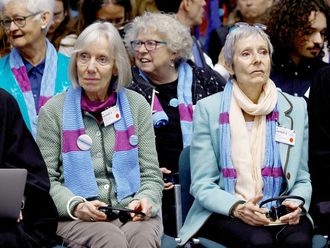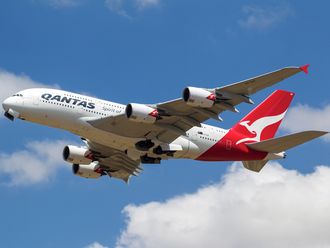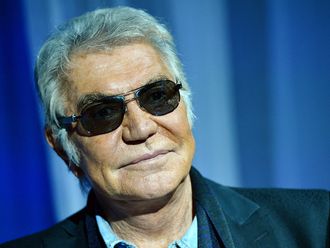London: Shortly before Britain’s Liberal Democrat leader Nick Clegg formed a government with the Conservatives in 2010, Angela Merkel is said to have remarked that in coalitions “The little party always gets smashed!”
As his party on Friday begins its last conference before a general election in May, polls indicate the German chancellor’s words have come true for the deputy prime minister.
The 23 per cent of votes won by his party in 2010 has shrivelled to about eight per cent, and the seats of over a third of the 57 Liberal Democrat lawmakers including Clegg’s own constituency are under threat.
But with no party expected to win a majority in the May 7 vote, the remaining Liberal Democrat lawmakers may still be needed to prop up a government led by the biggest party, be it the right-leaning Conservatives or their rivals the left-leaning Labour.
The two long-dominant forces of British politics are neck and neck in polls, and the 48-year-old Clegg has indicated he will speak to whichever side wins the most seats.
Clegg argues that he has softened Prime Minister David Cameron’s austerity policies by “anchoring the government in the centre ground” and in recent months has sought to distance himself from the Conservatives.
He has vowed that in the next parliament, the Liberal Democrats will hold back Conservative cuts and Labour borrowing, while bringing in flagship policies such as ending imprisonment for drug possession.
But European Parliament elections in 2014 were ominous for the party, which lost 10 out of its 11 MEP seats.
Polls indicate Clegg may lose his seat in May and his Sheffield Hallam constituency may instead elect a Labour candidate for the first time since 1885 — a result that would likely spell the end of Clegg’s political career.
The Liberal Democrats have also found their position as Britain’s third party challenged by the rise of the Euro-sceptics the UK Independence Party and a Scottish National Party set to sweep up most seats in Scotland.
Things didn’t always look so bleak for Clegg.
Born in Buckinghamshire in south east England to a Dutch mother and a half-Russian father, the 48-year-old speaks English, Dutch, French, Spanish and German and studied at the University of Cambridge, as well as in the United States and Belgium.
Married to a Spanish lawyer with whom he has three sons, Clegg began his career in journalism, and worked briefly for the Financial Times in Hungary in 1993.
He moved into politics in 1994 by taking up a post at the European Commission, and later became an adviser to the Conservative trade commissioner Leon Brittan.
Clegg was elected to the European Parliament as a Liberal Democrat in 1999, and in 2005 was elected MP for Sheffield Hallam in northern England.
He became the leader of his party two years later.
A winning performance in live television debates in the 2010 election campaign caught the mood of an electorate seeking change, and propelled Clegg to popularity in a phenomenon dubbed “Cleggmania”.
Forming a coalition with Cameron brought the Liberal Democrat party into government for the first time since 1922, but approval for the new deputy prime minister did not last.
The Liberal Democrats were accused of selling out.
A referendum brought by Clegg to end Britain’s first-past-the-post voting system, which favours big parties, was rejected by the electorate.
But the act that most heavily damaged Clegg’s reputation was his breaking of a pledge not to raise university tuition fees, made as he courted the student vote before the election.
Tens of thousands of students protested the rise of maximum tuition fees to £9,000 (12,600 euros, $13,400) a year in demonstrations that turned violent in London.
But Clegg and a majority of Liberal Democrat MPs voted in favour, and the bill narrowly passed in December 2010.
Dogged by the issue, Clegg tried to put it behind him in a video apology in 2012 — mercilessly remixed into a song by YouTube comedians in a clip that went viral.












